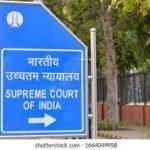This appeal, S.C. Narang vs. State (NCT of Delhi) & Anr., stems from an unfortunate incident involving a four-year-old child attending nursery class at Maxfort School, Dwarka, New Delhi. On 17th November 2017, the girl complained of pain in her private parts, revealing an alleged sexual assault by a classmate. An FIR was registered under Section 376 of the Indian Penal Code, 1860 (IPC) and Section 21 of the Protection of Children from Sexual Offences Act, 2012 (POCSO Act).
Following investigation, police filed a charge-sheet against the Principal, two teachers, and the Vice-Chairman/officiating Chairman, specifically under Section 21 of the POCSO Act read with Section 75 of the Juvenile Justice (Care and Protection of Children) Act, 2015 (JJ Act), as the prime accused was less than 7 years old. The appellant in this case is the Chairman of the Managing Committee running the school. Based on a second protest petition filed by the victim’s mother, the Special Judge summoned the appellant. This order was challenged by the appellant through a Revision Application, which was dismissed by the High Court.
Law Involved The core legal provisions examined were:
- Indian Penal Code, 1860 (IPC): Section 376.
- Protection of Children from Sexual Offences Act, 2012 (POCSO Act): Section 21.
- Juvenile Justice (Care and Protection of Children) Act, 2015 (JJ Act): Specifically Section 75, which pertains to “Punishment for cruelty to Child”. This section outlines punishment for anyone “having the actual charge of, or control over, a child,” who assaults, abandons, abuses, exposes, or wilfully neglects the child causing mental or physical suffering. It also includes provisions for increased punishment if the offence is committed by someone employed by or managing an organisation entrusted with child care.
- Directorate of Education Guidelines: Issued on 15th September 2017, these guidelines mandated the installation of sufficient CCTV cameras in school premises, covering classrooms, labs, corridors, parking, libraries, and areas outside washrooms.
Reasoning
The Special Court had found fault with the appellant for negligence in not installing CCTV cameras according to the Directorate of Education Guidelines, thus holding him responsible as Chairman for their implementation.
However, the Supreme Court meticulously analysed the applicability of Section 75 of the JJ Act.
- The appellant’s counsel argued that even if the prosecution’s case was taken as true, the appellant could not be said to have “actual charge or control over the victim child”. It was highlighted that the incident occurred within a few days of the CCTV guidelines being issued, and cameras were installed subsequently.
- The respondent-State and the victim’s counsel contended that, as Chairman, the appellant had full control over the school and was “fully responsible for taking care of the children”. They asserted his moral responsibility.
- The Supreme Court, in its interpretation of Section 75 JJ Act, emphasised that for a person to be punished, they must be shown to have either “the actual charge of the child or control over the child”. The “child” in this context refers specifically to the victim of the offence.
- The Court reasoned that it is “impossible to even allege that the appellant, being Chairman of the Managing Committee,” had the actual charge of all the children studying in the school. While the Chairman might have control over the management of the institution, this does not translate to control over “every child studying in the school”.
- Crucially, the Court stated that it is “not concerned with the moral responsibility of the school’s management” when considering Section 75 of the JJ Act. For the section to apply, it must be demonstrably shown that the appellant had “the actual charge of the victim child or control over the victim child”.
Therefore, the Court concluded that by “no stretch of imagination, Section 75 of the JJ Act could have been applied against the appellant”.
Holding The Supreme Court of India allowed the appeal.
- The impugned order passed by the Special Court and the impugned order passed by the High Court were quashed and set aside.
- The Court explicitly clarified that its observations and findings were solely for examining the appellant’s case and would “have no bearing on the pending case before the Special Court”, leaving all other questions open.
S.C. Narang v. State (Nct Of Delhi) And Another
Supreme Court: 2025 INSC 688: (DoJ 22-04-2025)






